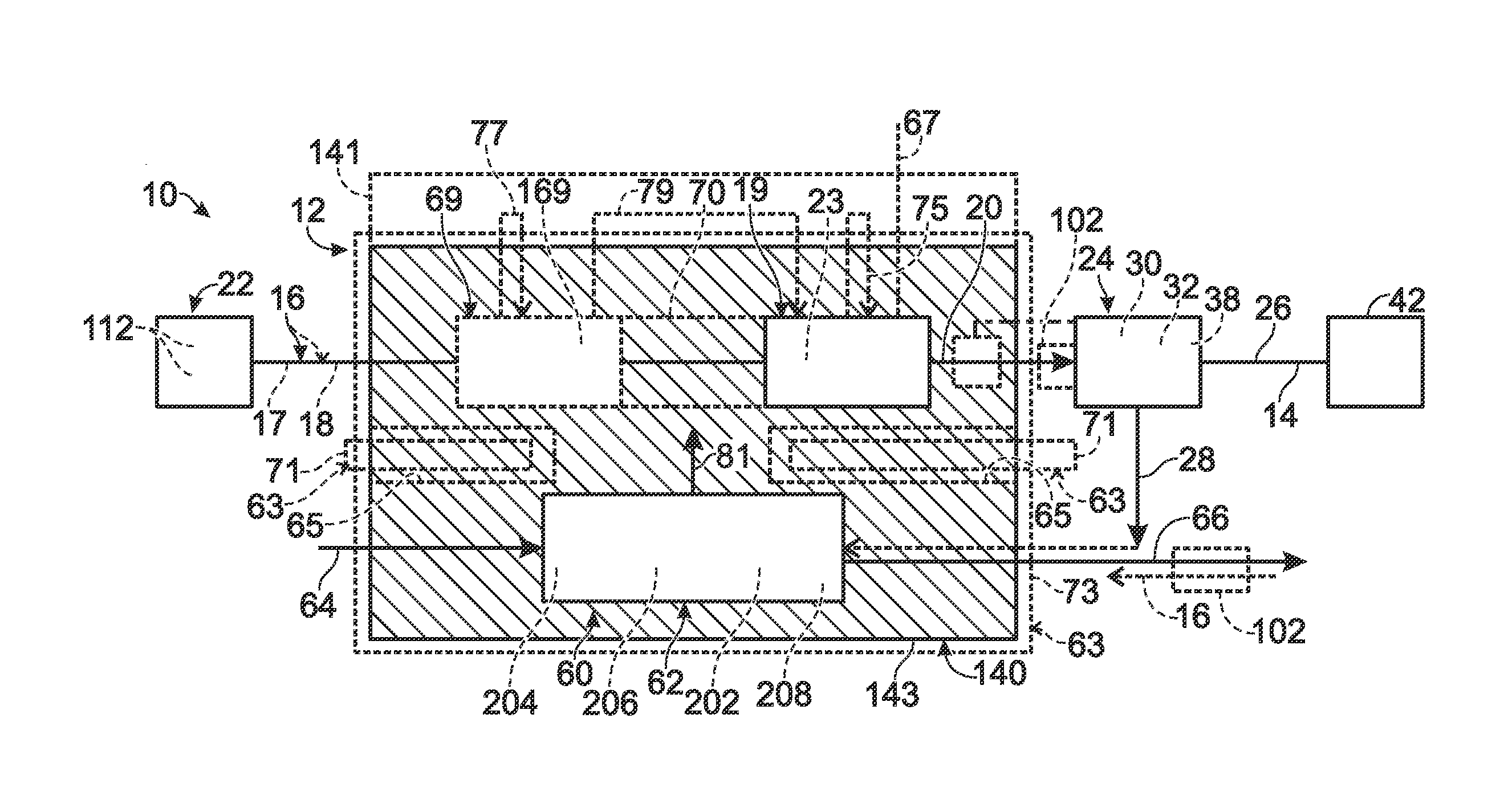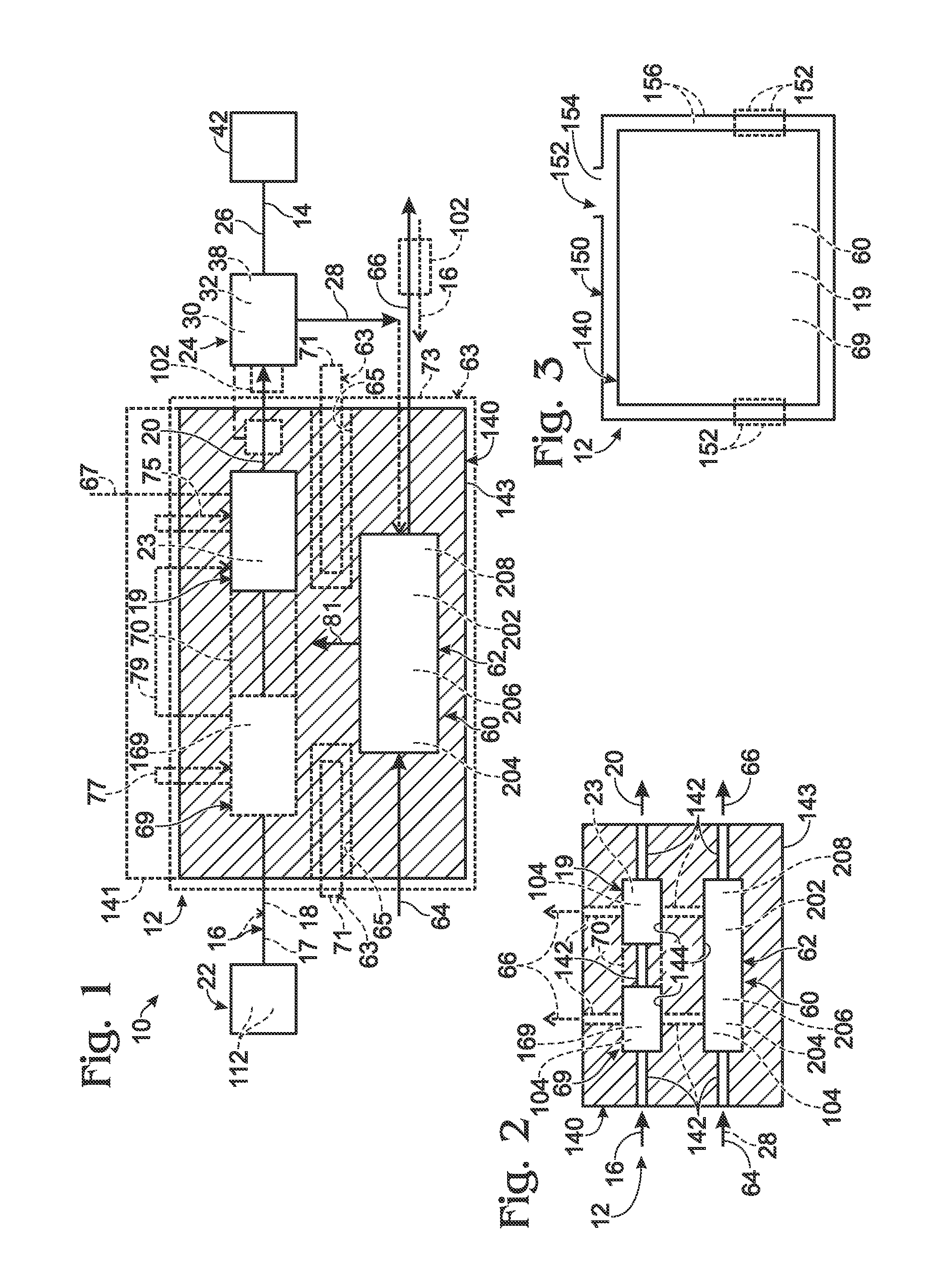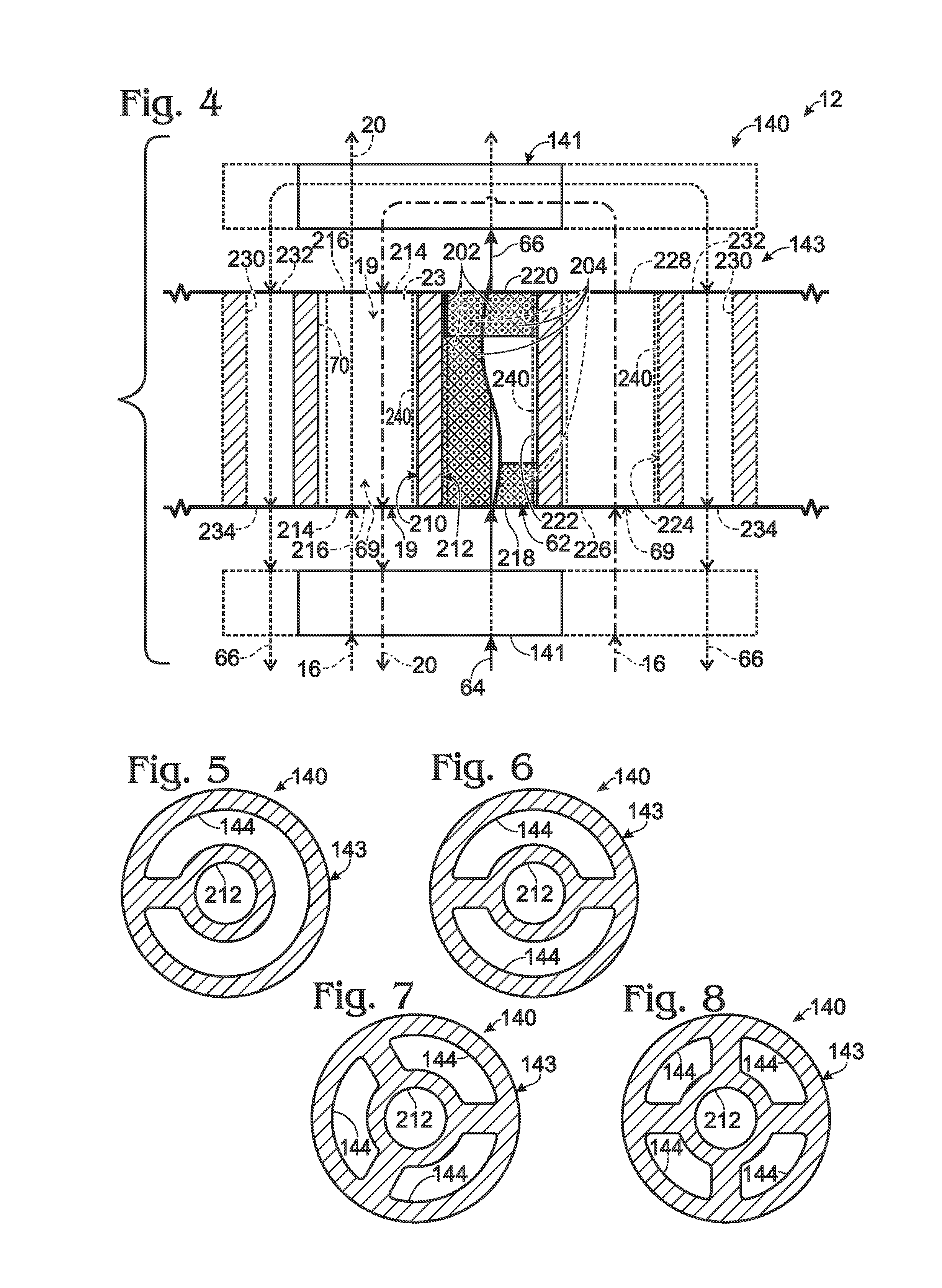Fuel processing systems with thermally integrated componentry
a fuel processing system and componentry technology, applied in the field of hydrogen-producing assemblies and fuel cell systems, can solve the problems of increasing the thermal management needs increasing the design cost or reliability, and contributing to the number of parts of the fuel processing system, etc., to achieve the effect of efficient utilization of heat generated
- Summary
- Abstract
- Description
- Claims
- Application Information
AI Technical Summary
Problems solved by technology
Method used
Image
Examples
Embodiment Construction
[0042]Fuel processing systems according to the present disclosure are schematically illustrated in FIG. 1 and generally indicated at 10. In FIG. 1, fuel processing systems 10 are schematically illustrated together with an optional fuel cell stack 42, which may be used to power an energy-consuming device, as discussed herein. Fuel processing systems 10 include a hydrogen-producing fuel processing assembly, or hydrogen-producing assembly, 12 and are adapted to produce a product hydrogen stream 14 containing hydrogen gas as a majority component, and in many embodiments at least substantially pure hydrogen gas, from one or more feed streams 16. Feed stream 16 may be drawn or otherwise received from one or more sources, or supplies, 112 by feedstock delivery system 22 and thereafter delivered to hydrogen-producing assembly 12. It is thus within the scope of the present disclosure that the one or more sources, or supplies, may be a portion of the feedstock delivery system or may be extern...
PUM
| Property | Measurement | Unit |
|---|---|---|
| vol % | aaaaa | aaaaa |
| vol % | aaaaa | aaaaa |
| Temperatures | aaaaa | aaaaa |
Abstract
Description
Claims
Application Information
 Login to View More
Login to View More - R&D
- Intellectual Property
- Life Sciences
- Materials
- Tech Scout
- Unparalleled Data Quality
- Higher Quality Content
- 60% Fewer Hallucinations
Browse by: Latest US Patents, China's latest patents, Technical Efficacy Thesaurus, Application Domain, Technology Topic, Popular Technical Reports.
© 2025 PatSnap. All rights reserved.Legal|Privacy policy|Modern Slavery Act Transparency Statement|Sitemap|About US| Contact US: help@patsnap.com



